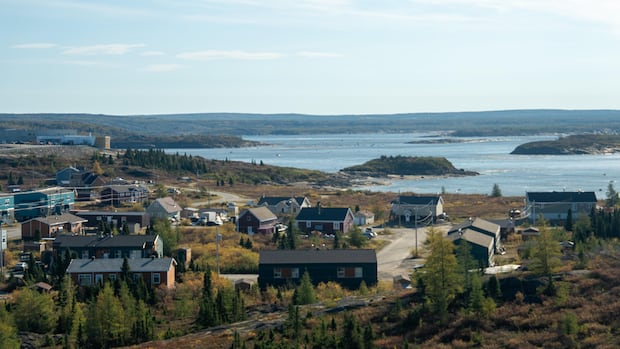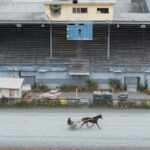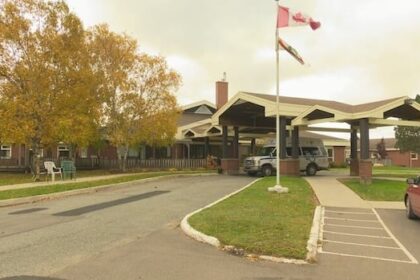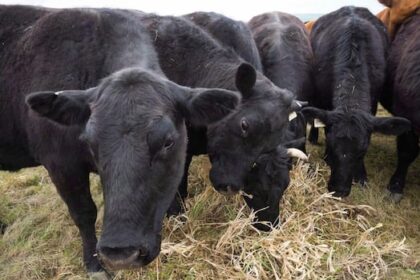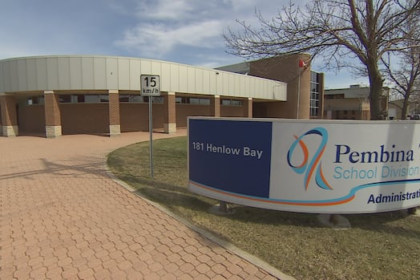NorthNunavimmiut say they want a post-secondary institution that’s grounded in culture, where students can learn on the land, and whose programs reflect both Inuit and Western knowledge. ‘Nunavimmiut are ready to lead their own educational future,’ says region’s school board presidentListen to this articleEstimated 4 minutesWith no post-secondary institutions in the region, Nunavik residents must leave their communities to pursue their studies. (Félix Lebel/Radio-Canada)Grounded in culture, learning on the land, and “programs that reflect both Inuit knowledge and Western academic standards” — that’s what Nunavik residents want to see in a post-secondary institution that’s close to home, according to a public consultation report published this week by Kativik Ilisarniliriniq (KI), the region’s school board. “This report confirms what we have known for decades: Nunavimmiut are ready to lead their own educational future,” said Sarah Aloupa, president of KI, in a statement. The report is the result of consultation that took place between October 2023 and March 2024, when 423 Nunavimmiut (about three per cent of the region’s population) shared their vision for post-secondary education in Nunavik. Residents had the opportunity to comment via survey, radio call-ins, and in-person sessions. Sarah Aloupa is the president of Kativik Ilisarniliriniq, the Nunavik school board. (Eilís Quinn/Radio-Canada )“We need pilots, lawyers, airplane mechanics, architects, doctors, PhDs, surgeons, heavy equipment operators, and so on,” reads some of the feedback highlighted in the report. “Inuit are capable of learning all these things. The college must provide all the courses to train our people for these occupations.”‘Nunavik Institute’There is currently no college or university campus located in Nunavik.According to the report, in 2023, the Quebec Ministry of Higher Education (MES) commissioned a prefeasibility study to bring a post-secondary institution to the region. That study recommended establishing the “Nunavik Institute,” which could accommodate about 340 students and 75 staff, and would “combine the benefits of local governance, culturally relevant programs, public funding, and program certifications that would be recognized outside the region.”The Kativik Ilisarniliriniq head office in Kuujjuaq. While the board is responsible for 18 schools across Nunavik, it does not currently have jurisidiction over post-secondary education in the region. (Eilís Quinn/Radio-Canada)Now, after the publication of the consultation report, Aloupa said the KI’s council of commissioners supports the creation of a Nunavik Institute. “This move aligns with the council’s view that our youth deserve access — in their region — to higher education that reflects who they are, where they come from, and where they want to go,” reads her statement. Currently, under the James Bay and Northern Quebec Agreement (JBNQA), KI doesn’t have jurisdiction over post-secondary education in Nunavik. For KI to take over responsibility for a post-secondary institution, the JBNQA would need to be renegotiated. Alternatively, according to the report, an independent institution could be established with its own board of governors — similar to how CEGEPs are run in the province. “An independent institution may offer more flexibility than one run by KI, but such an institution would have to build its human and material resources from the ground up,” reads the consultation report. Post-secondary partnershipsIn the meantime, Phebe Bentley, KI’s director of post-secondary student services, says the organization has been “working on different projects to allow us to make post-secondary education more accessible and we’re testing the waters with programs.”Earlier this year, the school board partnered with McGill University and John Abbott College to bring some post-secondary courses to Nunavik, including a teaching certificate, a media course for Inuit, and a 10-day sewing arts workshop. Phebe Bentley, Kativik Ilisarniliriniq’s director of post-secondary student services, says a post-secondary institution in the region would help reduce barriers for residents. (Submitted by Phebe Bentley)Bentley said KI has a good working relationship with Quebec’s Ministry of Higher Education and hopes to have the first full post-secondary programs up and running within three years.She says a Nunavik Institute would help reduce the barriers to post-secondary education for residents. “Right now you have to leave the region and unless you are a family member or know somebody who goes to post-secondary college or university, you might not see it or hear about it firsthand,” she says. “Everything that comes with the institution … I think it’s a positive thing. If more people see it, they see people graduate or if they see different programs in their language, it’s a part of self-determination and decolonization … and the youth will see it as maybe they can do that too.”ABOUT THE AUTHORThomas Ethier is a reporter with Radio-Canada in Yellowknife.
Wednesday, 4 Feb 2026
Canada – The Illusion
Search
Have an existing account?
Sign In
© 2022 Foxiz News Network. Ruby Design Company. All Rights Reserved.
You May also Like
- More News:
- history
- Standing Bear Network
- John Gonzalez
- ᐊᔭᐦᑊ ayahp — It happened
- Creation
- Beneath the Water
- Olympic gold medal
- Jim Thorpe
- type O blood
- the bringer of life
- Raven
- Wás’agi
- NoiseCat
- 'Sugarcane'
- The rivers still sing
- ᑲᓂᐸᐏᐟ ᒪᐢᑿ
- ᐅᑳᐤ okâw — We remember
- ᐊᓂᓈᐯᐃᐧᐣ aninâpêwin — Truth
- This is what it means to be human.
- Nokoma


